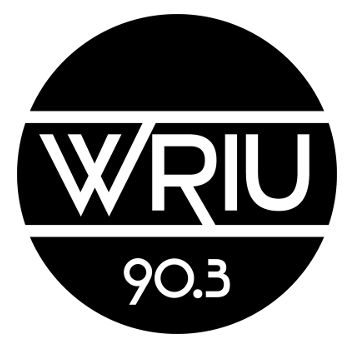Newport Jazz Interview Series: Julius Rodriguez
WRIU Newport Jazz Interview Series: Julius Rodriguez
“A lot of performances, you could go on forever and ever… Just trying to figure out what to fit in a set. That’s the hardest part.” – Julius Rodriguez
Julius Rodriguez is a 24-year-old jazz musician from White Plains, New York. He took the Harbor Stage at the Newport Jazz Festival on Friday, August 4. This was Rodriguez’s first time performing at the Newport Jazz Festival, but his second time on a Newport stage, as he accompanied Remi Wolf at the Folk Festival the weekend prior.
WRIU caught up with Rodriguez after his set. Here is the conversation between Anna and Julius [edited for brevity]:
A: Julius, how did it feel to take the historic Newport stage?
J: We had a good stage, good show, and good crowd – couldn’t ask for more
A: Given the rich history of Newport Jazz, could you feel some of that up there today?
J: For sure. I’ve listened to live in Newport records, and watched any footage I can get, to see how the music moves the crowds at this festival specifically and try and just channel that and embody that in what we play.
A: What do you hope the audience got out of your performance today?
J: I mean, the music is me expressing myself – for me it feels relieving always to play music and let it out, and I am hoping that the audience can have an experience unique to them.
A: How would you say you’ve grown as an artist and a person since your last album release, Let Sound Tell All?
J: Life has been crazy since we released that record. Moved across the country, and I’ve basically been on the road ever since. As busy as I am, I am learning a lot about myself and what I want to be doing in the future.
A: Your song “Blues at the Barn” begins with a muffled applause that sounds like it is from the mid-20th century, before breaking through to the other side. What inspired this experimental introduction?
J: For me it was listening to all of my references and noticing, hey, there’s actually a sonic difference between the music from then and the music from here. What if we use this to our advantage rather than just trying to make everything sound as new and sterile as possible – to try and make art out of those sort of techniques.
A: With all of this musical momentum, what would you say keeps you grounded?
J: My friends and my family – just trying to cultivate my relationships outside of music and stay grounded and stay in a sphere with regular people who aren’t doing what I’m doing all the time, since you’ve got to have a separate perspective to know what’s going on.
A: Are there any artists or films that have inspired you lately?
J: I’ve been listening to a lot of PinkPantheress, most recently the new Rosalia album I’ve been obsessed with, those have been two big influences on me.
A: Having collaborated with many greats, from Roy Hargrove to ASAP Rocky, what’s the most important qualities you’d say you need when working with other musicians?
J: The most important quality when working with other musicians, I think, is just to be true to yourself.
A: What would you say is the hardest part about performing for you?
J: The hardest part is stopping – stopping on time. A lot of performances you could just go on forever and ever… Just trying to figure out what to fit in a set. That’s the hardest part.
